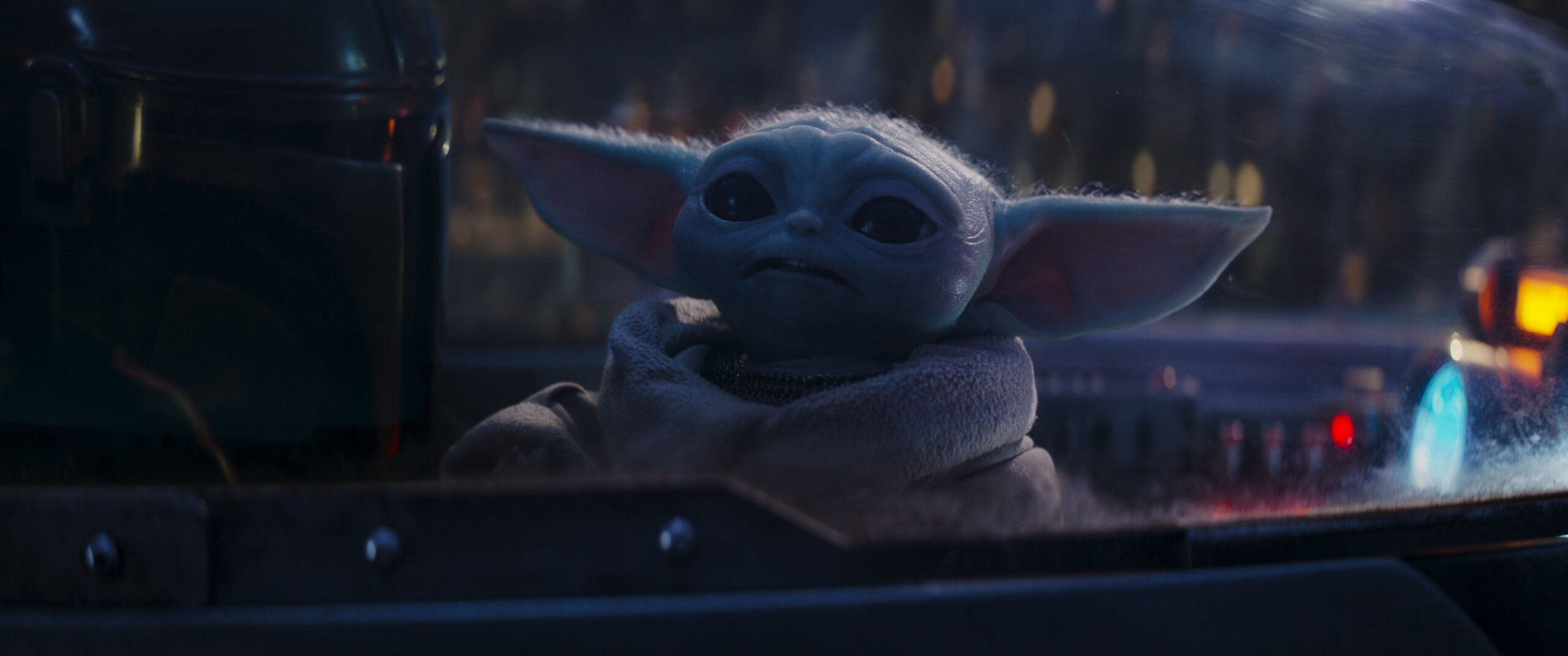The Mandalorian continues to wow us with its exploration of Din Djarin’s relationship with his adoptive son, Grogu. Much has been said about Pedro Pascal’s choices to portray soft characters that force us to question patriarchy and toxic masculinity.
Set after Return of the Jedi and the New Republic was formed, The Mandalorian shows how dark forces continue affecting vulnerable people in places like Nevarro. Like many new democracies, the New Republic is still figuring out how to govern properly, and good intentions often die under the weight of a labyrinthine bureaucracy.
Thankfully, there are people such as Din Djarin who work independently and aren’t afraid of subverting a few rules when necessary. We’ve seen over and over again how his moral code and acumen get him out of dangerous situations.
Having been raised in a tight-knit community, the Mandalorian’s creed seems almost like a religion or strict moral code. Living life without being able to show your face to those you love seems like a nuisance — and that’s one of the easier things about being a Mandalorian. This is truly a society where everyone works together and often puts their own individual needs aside for the greater good.

Din Djarin begins alone, and we only later get a view of how Mandalorians operate together. Watching his journey got me thinking: how good are we at keeping our word to ourselves? How good am I at keeping the promises I make to both myself and others?
In my quest to answer these questions, I ended up thinking about how much Din Djarin and the rest of the Mandalorians would make Don Miguel Ruiz proud. Ruiz is the author of The Four Agreements, a book that’s been hailed around the world for its Toltec-era wisdom.
Din Djarin risks his life for people he barely knew because he gave his word. He only chooses to remove his helmet in a moment of vulnerability, and in season three—spoiler alert—he is able to redeem himself and unwittingly helped Bo Kattan (Katee Sackhoff) do the same. Even though he isn’t intending to, he also makes friends with IG-11, Ahsoka Tano (Rosario Dawson), Greef Karga (Carl Weathers), Carson Teva (Paul Sun-Hyung Lee), and many more.
With his cool demeanor and military training, Din Djarin acts cool under challenging circumstances. He and other Mandalorians truly don’t take anything personally. They understand that they live in a tumultuous time that requires sacrifices and tough decisions. In those circumstances, it’s best to pick your battles and recognize when friends and even enemies are having a bad day.

Part of Don Miguel Ruiz’s four agreements includes this tenet: don’t make assumptions. In season one, Din Djarin is expected to turn Grogu over to Dr. Penn Pershing (Omid Abtahi), ask no questions, and leave. His intuition, though, spurs him into action, and so begins Din Djarin’s decision to become a father.
Throughout the course of the show, Din Djarin deals with unexpected enemies, surprises, and friends. He and the other Mandalorians manage to adapt to their new obstacles while still retaining their sense of self. And there’s a lesson for those of us on Earth too – flexibility in our own boundaries and expectations is one of the ways we grow. We can’t be our best all the time and we will let ourselves down if we beat ourselves up. By not being so rigid, we can even improve how we keep our word to ourselves, live in peace, and find like-minded individuals who also want to do and be better.
There’s so much we can learn from Din Djarin and the rest of the Mandalorians about what it means to be honest with ourselves, live out our beliefs, and keep our word. We may not live in a world full of Jedi or battle-tested bounty hunters with good hearts. But Din Djarin’s journey still reminded me that it’s okay to live by my own standards and moral code, uphold boundaries, and be kind to myself when things go awry. Therapy and other resources can teach us this, but it’s also cool to have a pop culture icon guide us. This is the way.

